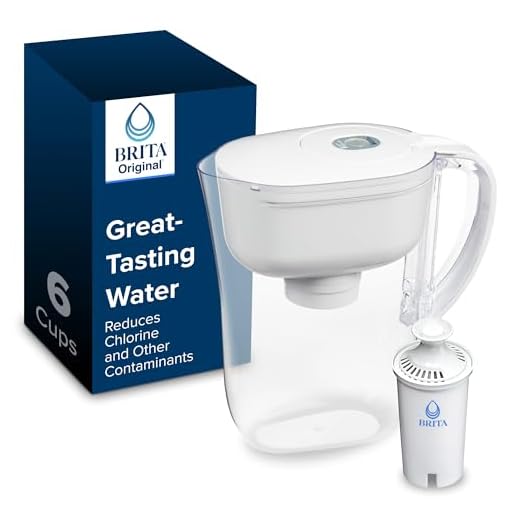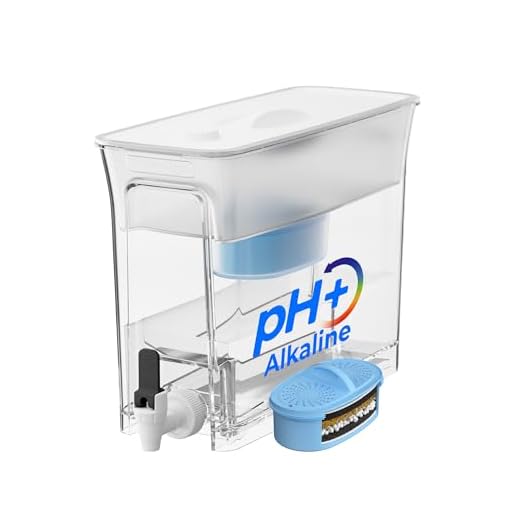




The Source of Your Water Supply
The source of water impacts its flavor profile significantly. Municipal water supplies often undergo extensive treatment processes that can introduce various chemicals, such as chlorine, meant to eliminate harmful bacteria. While these chemicals serve an essential purpose, they can leave behind distinct flavors and odors that many people find unappealing. On the other hand, well water tends to reflect the characteristics of the local geology. This can lead to variations in taste and odor, influenced by minerals and organic material present in the groundwater.
Taste perception varies between different sources of water. Consumers who are accustomed to well water may find municipal water’s chemical taste jarring or unpleasant. Conversely, those who primarily drink municipal water might consider well water’s earthy or metallic notes as undesirable. Understanding these differences helps explain why water filters can affect taste; filters aim to address these specific flavor components based on the original source of the water supply.
Effects of Well Water vs. Municipal Water
Well water and municipal water can vary significantly in taste and odor due to their distinct origins. Well water often contains minerals and organic materials picked up from underground sources. This can result in flavors ranging from earthy to metallic, influenced by the geological composition of the surrounding soil and rock layers. On the other hand, municipal water typically undergoes extensive treatment processes, including chlorine disinfection. This can impart a distinctly different taste, sometimes described as chemical or overly processed, depending on the chemicals used in treatment.
The differences can also stem from the presence of additional contaminants in well water. Elements like sulfur or iron may be more prevalent, contributing to unpleasant tastes and odors. In contrast, municipal systems are regularly monitored for contaminants, ensuring a more consistent taste across the board. While some consumers may prefer the taste of well water for its perceived freshness and purity, others might lean towards the reliability of municipal sources. Each type offers distinct flavor profiles that reflect its unique treatment and filtration processes, influencing consumer preference.
Material of the Water Filter
The material used in water filters plays a crucial role in determining the taste of the water. Filters made from different substances, such as activated carbon, ceramic, or plastic, each have unique properties that can influence not only how effectively they remove impurities but also how they affect the water’s flavor profile. For instance, activated carbon is often praised for improving taste by absorbing chlorine and other organic contaminants. However, the choice of materials can also lead to unwanted leaching, where the filter itself contributes foreign tastes to the filtered water.
Plastic components can impart a subtle but noticeable flavor, especially if the water is stored for an extended period. Certain metals used in filters may lead to a metallic taste, particularly if the water has high mineral content. As consumers become more aware of these effects, they may develop preferences or aversions to specific types of filtered water based on its source and the materials used in filtration systems. Understanding the interaction between filter materials and water quality can help consumers make more informed choices.
Impact of Plastic and Metal Components
The materials used in water filters can significantly influence the taste of the water. Plastic components are often associated with a slight alteration in flavor, which some users attribute to chemical leaching from the filter itself. These changes can be especially noticeable when water is stored in plastic for extended periods. While many manufacturers claim their products are BPA-free, residual chemicals still might impart a subtle taste, affecting the overall drinking experience.
On the other hand, metal components in filters can introduce a different set of tastes and odors. Stainless steel and other metals may enhance the water’s overall purity, but some individuals may find a metallic aftertaste unpleasant. This can be more pronounced if the filter system has been in use for a long time, potentially accumulating deposits that alter the taste. The type of material can play an essential role in how consumers perceive the overall quality and enjoyment of their drinking water.
Consumer Perceptions of Filtered Water
The taste of filtered water plays a significant role in consumer preferences. Many people associate certain flavors with purity and quality, influencing their choices when selecting filtration options. Some individuals elevate the experience of drinking water through the perceived freshness that a filter provides. Others may develop a preference for specific brands based on taste, even if those brand variations are slight.
Psychological factors also contribute to how consumers perceive filtered water. When people invest in a water filter, they may expect it to produce cleaner and better-tasting water, which can create a heightened sense of satisfaction. Consequently, this expectation can shape their overall experience, leading them to favor filtered water over tap options, regardless of any actual differences in taste or quality.
Psychological Effects of Water Taste
Taste is not merely a physical perception; it intertwines with psychological factors that shape our preferences. When individuals encounter water filtered through different systems, their perception of taste can be significantly influenced by past experiences and brand associations. A consumer might find one brand of filtered water more appealing based on positive memories or marketing campaigns, leading to a stronger preference even if the actual taste difference is minimal.
The environment in which water is consumed can also play a role in shaping taste perception. Drinking water in a serene setting may enhance the experience, whereas consuming it in a rushed atmosphere could detract from enjoyment. This connection between environment, mood, and subjective taste can lead to varied opinions about the quality of filtered water, further complicating how people perceive flavors in their daily hydration routines.
FAQS
Why does the source of my water supply affect its taste after filtering?
The source of your water supply, whether from a well or municipal supply, can introduce different minerals, chemicals, and contaminants that a filter may or may not effectively remove. This can alter the taste of the water, potentially leading to noticeable differences after filtration.
What is the difference between well water and municipal water in terms of taste?
Well water often contains higher levels of minerals and natural substances that can give it a distinct flavor, while municipal water is typically treated and may include chlorine or other chemicals that can also affect taste. The specific contaminants present in each source contribute to their unique flavors.
How do different materials in water filters impact taste?
The materials used in water filters, such as plastic or metal components, can leach into the filtered water, introducing unwanted tastes or odors. For example, filters with plastic components may impart a plastic-like taste, while metal elements could introduce metallic flavors.
Can the design of the water filter influence the taste of the water?
Yes, the design of a water filter can affect water flow and contact time, which can influence how effectively it removes contaminants. Poor designs may lead to incomplete filtration, resulting in a taste that reflects the presence of residual contaminants.
Do consumer perceptions play a role in how we perceive the taste of filtered water?
Absolutely. Consumer perceptions can significantly influence how individuals interpret the taste of filtered water. Psychological factors, such as the belief that filtered water is cleaner or healthier, can enhance the taste experience, even if the actual flavor remains unchanged.
Related Links
History of Water Filtration and Taste Improvement
What Are the Best Filters for Enhancing Water Flavor

